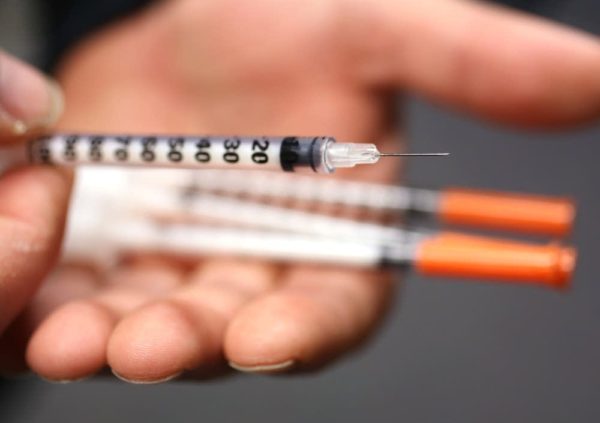As the state continues to grapple with an epidemic of opioid addiction that has claimed nearly 4,000 lives in just three years, AIDS Action Committee’s Needle Exchange and Overdose Prevention Program is growing to meet an increased demand for services. A new street-based outreach program sends staff into the community to invite people who inject drugs to its drop-in centers. Staff can also provide services on the spot such as wound care, syringe exchange, and referrals to other services.
AIDS Action was recently awarded a $200,000 grant from Pfizer, Inc. to support and expand this work.
“Despite the continued surge in deaths related to opioid overdoses, a massive shortage of treatment programs remains. People who inject drugs need access to care that will help them stay healthy and hopefully put them on the path to recovery,” said AIDS Action Executive Director Carl Sciortino. “This grant gives us the support needed to expand our programs so we can save even more lives.”
In 2016, AIDS Action met increased community demand for services by distributing more than 200,000 sterile needles and syringes, a 50 percent increase over 2015. The program also reversed more than 250 opioid overdoses, a 32 percent increase from 2015.
“Pfizer has a long-standing commitment to improving health outcomes by expanding access to medicines and ensuring patient safety through educational activities,” said Caroline Roan, vice president, Corporate Responsibility, Pfizer. “Our support of AIDS Action’s work to increase community education about the risks of opioid abuse and recently expanded Naloxone Access Program underscore our dedication to helping address the growing opioid overdose epidemic.”
AIDS Action’s needle exchange services include training and workshops in reversing opioid overdoses for people who inject drugs as well as those who are at high risk for witnessing an overdose; free testing for HIV and hepatitis C; free exchanges of used syringes for sterile ones; and access to treatment.
“We applaud Pfizer for contributing to the improved health of Cambridge residents,” said Cambridge Chamber of Commerce CEO David Maher. “As a significant employer in Cambridge, Pfizer is already an important part of the economic vibrancy of our city. Now, through their partnership with AIDS Action Committee, they are also demonstrating their willingness to go above and beyond. As a member of the Chamber we are proud of Pfizer’s investment in combating the opioid epidemic.”
Nationally, heroin use has gone up 150 percent since 2007. The rate of opioid overdoses in Massachusetts has increased exponentially, with a 273 percent increase in opioid-related deaths since 2000.
The Needle Exchange and Overdose Prevention Program at AIDS Action was established in 1994 when the Massachusetts Department of Public Health passed legislation approving up to 10 pilot needle exchange programs in the state. At AIDS Action’s drop-in centers, staff employ a harm reduction model to engage people who inject drugs with a continuum of services that will make it easier for them to come back, even if they are not ready to enter a treatment recovery program. AIDS Action’s overdose prevention and Narcan distribution program has trained thousands of people in how to reverse opioid overdoses. Staff engage in street-based outreach to invite people who inject drugs to our drop-in centers, and provide training on how to recognize and respond to an overdose.


